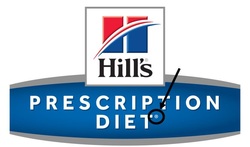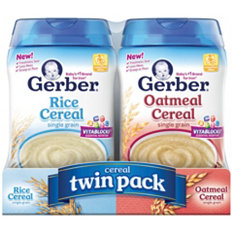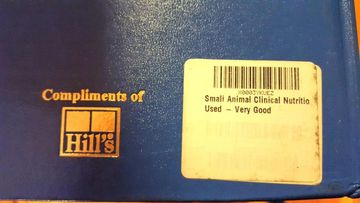
“Is the pet food you are serving up killing your four-legged friend?” Asks the headline of an article published in the UK’s Daily Mail in 2010. As co-founders of the Raw Feeding for IBD Cats group on Facebook, we (Carolina Lima and Laurie Goldstein) ask that question a lot. Commercial processed food is failing our furry family members. The incidence of food related illness in our pets is rising, yet many of our vets continue to recommend food with grains and legumes to our carnivores, and "prescribe" science-based foods, believing that whole, fresh foods are harmful to our pets. How can this be?
The fact of the matter is we fed our cats commercial kibble and canned foods. My husband and I (this is Laurie writing) were rescued by our first cat in 2001. We free-fed kibble on the advice of one of our vets. It was explained to us that cats hunt small prey, so their natural style of eating is many small meals a day, and kibble enabled that. It never occurred to us to ask if the type of food they’re fed should also mimic the small prey they naturally eat. This was a veterinarian, surely this person understood what cats need to thrive and promote optimum health. It wasn’t until we rescued a cat, Chumley, or until Carolina’s Bugsy developed inflammatory bowel disease, that the nutritional knowledge of our veterinarians was called into question. Both cats had intractable diarrhea that led to this medicine and that medicine, and numerous “prescription” diets. Yes, I use quotes around the word prescription, because it is simply – for Hills – part of a trademarked name. Royal Canin and Purina call their “prescription” foods “Veterinary Diets.” None of these foods are actually prescription items that carry a Federal Legend on the bag that requires a veterinary prescription to fill. Make no mistake: "Prescription" foods and "Veterinary Diets" are a form of marketing, and an insidious one that consumers need to question. 
Imagine walking into your pediatrician’s office, and the walls are lined with baby formula, cereal, and cans of food marketed to your children. You shop for food for your children at the doctor's office, not the supermarket. You do this because your doctor suggested you feed your child that brand of cereal, that brand of stew. And when your child gets sick, the doctor has a “prescription” food for that ailment. Now imagine this doctor’s nutrition training included just two or three courses in his eight years of university; those courses were taught by the same company whose food he sells in his office; the textbook used to teach those courses was written by that same food company. Imagine that doctor tells you that there is every reason to trust the science, because the food companies spend millions on research - and the nutrition children need is different than that of adults, it's too complicated to get it right if you do it yourself at home, and fresh food is dangerous as it can carry bacteria and infectious agents. Should you believe him? Do you think it is best to feed your child only processed food (made by the company that taught him what the best food to feed is) – forever? In this scenario, would you believe that this for-profit food company is spending their research dollars with the sole goal of improving the health and well-being of your child? They have no interest in you feeding your child on your own – where’s the money in that? Why would they research what is best for your child? Isn’t it possible that actually conflicts with their goal of corporate profits? Isn’t it likely much of that research goes into how to improve their profit margins? 
That scenario is the pet food reality.
Pet food companies team up with university veterinarian programs (“Hill’s Gives $5 Million to Ontario Vet College For Educational Center” April 2009). Pet food companies
In fact, the textbook used in nearly every pet nutrition course in every veterinary school, Small Animal Clinical Nutrition, is written by the Mark Morris Institute. What is the Mark Morris Institute? Mark Morris founded Hill’s Pet Nutrition, and his son endowed the Institute in his father’s honor, in keeping with the company’s marketing strategy of using the vets to market their food. The Mark Morris Institute also pays a dozen veterinarians, whom they send, free of charge, to veterinary schools to teach pet nutrition. As discussed by Vince Field, Esq. in The Pet Food Recall and Food Safety (2008), "the commercial pet food industry’s connection to the veterinary profession has resulted in the creation of a system in which veterinarians are not only ill suited to counsel their clients on pet nutrition, but have a financial stake in their clients’ market decisions as well. One of the key questions to be examined here is the ethical implications of a system in which pet food companies are used to educate veterinarians about pet nutrition while at the same time providing veterinarians with exclusive rights to the sale of their pet food products (which may account for up to 40% of the profit of veterinary clinics)." So as the article in the UK Daily Mail states, “While cat and dog food sales have soared by 85 per cent over the past decade, research by the Pet Food Manufacturers Association shows that one in three household pets is now overweight - and chronic conditions in our pets, such as diabetes, kidney and liver disease, heart disease and dental problems (all related to diet) are on the increase.” VPI Pet Insurance indicates that food-related allergies, ear (yeast) infections, and diarrhea or vomiting consistently top the list of reasons for a vet visit. The pet food manufacturers might tout their science and their research. They may proclaim the "proven" benefits of their products. But it becomes increasingly difficult to deny the relationship between pet food company “nutritional training,” veterinary organization and conference funding, veterinarians profiting from the sale of that very same pet food, and deteriorating pet health with food-related chronic diseases.
2 Comments
|
Archives
August 2021
Categories
All

|
 RSS Feed
RSS Feed